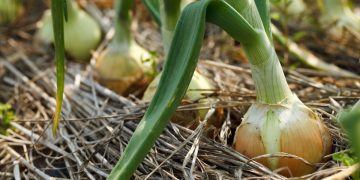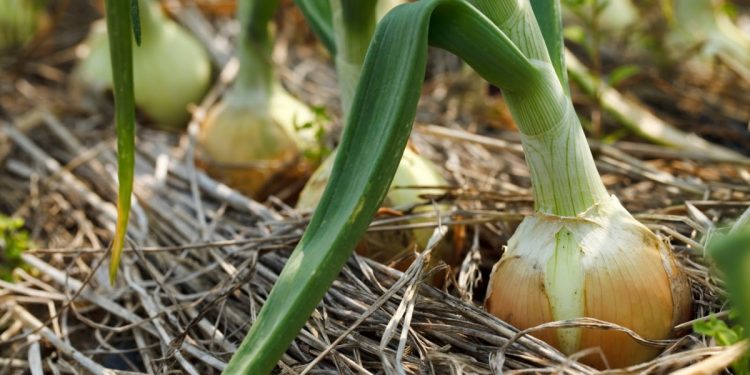In this article, we delve into the critical role of manganese in onion cultivation and explore effective strategies to optimize its usage for achieving superior yields. Backed by the latest data and scientific insights, we discuss the importance of manganese as an essential micronutrient, examine its impact on onion development, and shed light on the consequences of manganese deficiency. Discover how optimizing manganese management can elevate your onion farming to new heights.
Manganese plays a crucial role in onion growth and development, acting as an enzyme cofactor involved in various metabolic processes. As a micronutrient, manganese is required in small amounts but plays a significant role in plant physiology. Its deficiency can lead to decreased growth, reduced bulb size, and impaired overall onion productivity. Therefore, ensuring an adequate supply of manganese is essential for optimizing onion yields.
According to data from the International Plant Nutrition Institute (IPNI), manganese deficiency is a common issue in onion production, particularly in alkaline and sandy soils. Manganese deficiency symptoms include yellowing of leaves, interveinal chlorosis, and stunted growth. Timely identification and correction of manganese deficiency are crucial for preventing yield losses and maximizing onion crop performance.
To optimize manganese availability for onions, various approaches can be employed. Soil testing should be conducted to determine the manganese levels accurately. Based on the results, corrective measures can be taken, such as applying manganese-enriched fertilizers or foliar sprays. Additionally, maintaining optimal soil pH, avoiding excessive irrigation, and incorporating organic matter can aid in improving manganese uptake by onion plants.
Development in manganese management techniques has shown promising results in enhancing onion yields. For instance, a study published in the Journal of Plant Nutrition and Soil Science demonstrated that the application of manganese fertilizers increased bulb size, improved yield, and enhanced the nutritional value of onions. These findings highlight the potential of optimizing manganese as a means to boost onion production and quality.
Consequences of manganese deficiency extend beyond reduced yields. Manganese is involved in various enzymatic reactions, including those related to photosynthesis and nutrient uptake. Therefore, addressing manganese deficiency not only promotes onion growth and productivity but also ensures optimal nutrient utilization and overall plant health.
In conclusion, optimizing manganese management is crucial for maximizing onion production and achieving superior yields. By recognizing the significance of manganese as a micronutrient, monitoring its availability in the soil, and employing appropriate corrective measures, farmers can effectively mitigate manganese deficiency and unlock the full potential of their onion crops. Embracing these strategies will contribute to the overall success and profitability of onion farming.
#ManganeseOptimization #OnionProduction #Micronutrients #YieldEnhancement #CropQuality #SoilManagement #AgriculturalProductivity































